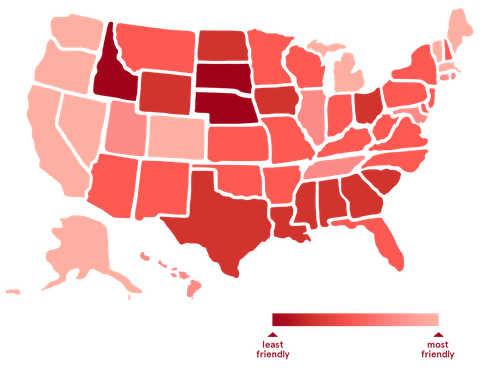
With the growing popularity of CBD products, it’s natural for consumers to wonder about the legal status of CBD in their state. While CBD, short for cannabidiol, is derived from the cannabis plant, it is important to note that not all CBD products are created equal, and its legal status can vary from state to state.
Understanding CBD
Before diving into the legality, it’s crucial to understand what CBD is and how it differs from other compounds found in cannabis. CBD is a non-psychoactive compound, meaning it doesn’t produce the “high” associated with marijuana use. On the other hand, THC, another well-known compound found in cannabis, is psychoactive and federally illegal in the United States.
While CBD can be derived from both hemp and marijuana plants, the legal status of CBD depends on its source. Hemp-derived CBD, containing less than 0.3% THC, was legalized on a federal level with the passage of the 2018 Farm Bill. In contrast, marijuana-derived CBD, which can have higher levels of THC, is subject to stricter state regulations.
The Varied Legal Landscape
When it comes to the legality of CBD, it’s essential to examine state laws, as they can differ greatly from federal regulations. While the 2018 Farm Bill gave a green light to hemp-derived CBD, individual states have the authority to set their own laws regarding marijuana-derived CBD.
At the time of writing, 36 states in the United States have legalized medical marijuana, allowing for the use of marijuana-derived CBD for qualifying medical conditions. Among these states, some require medical marijuana cards or prescriptions, while others have established dispensaries where CBD can be purchased.
For recreational use, the story is different. Eleven states and the District of Columbia have legalized recreational marijuana, which generally allows for the use and sale of marijuana-derived CBD. These states typically have specific guidelines and age restrictions for purchasing and consuming CBD products.
However, it’s worth mentioning that even in states where marijuana is legal, some local municipalities may have their own restrictions or bans on CBD products. It’s essential to research and familiarize yourself with both state and local laws.
States with Stricter Regulations
While many states have adopted more progressive views towards CBD, there are still some with stricter regulations or bans on the use and sale of CBD products.
Idaho
Idaho has some of the strictest CBD laws in the country. Both hemp-derived and marijuana-derived CBD are illegal in the state, regardless of THC content. Possession of CBD in Idaho can result in criminal charges, even for individuals with debilitating medical conditions that could potentially benefit from CBD use.
Nebraska
Nebraska is another state where CBD is largely illegal. While some limited exceptions exist for individuals participating in clinical trials, the sale and possession of CBD products are prohibited under Nebraska law.
South Dakota
In South Dakota, both medical and recreational marijuana are illegal, meaning all forms of CBD are also prohibited. Despite recent legislative efforts to legalize medical marijuana, CBD remains illegal in the state.
Research and Stay Informed
Given the constantly evolving legal landscape surrounding CBD, it is essential for consumers to stay informed and up-to-date on the laws in their state. While CBD is more widely accepted and accessible than ever before, it’s crucial to be aware of any restrictions or regulations that may apply in your specific area.
If you are considering using CBD for medical purposes, consult with a healthcare professional who can provide guidance on the legalities and potential benefits of CBD in your state.
In Conclusion
The legal status of CBD in your state depends on various factors, including its source (hemp or marijuana) and the state’s specific laws surrounding cannabis. While CBD derived from hemp with low THC content is federally legal, individual states have the authority to regulate CBD derived from marijuana. To ensure compliance with state laws, research and stay informed about the regulations in your area before purchasing or using any CBD products.
